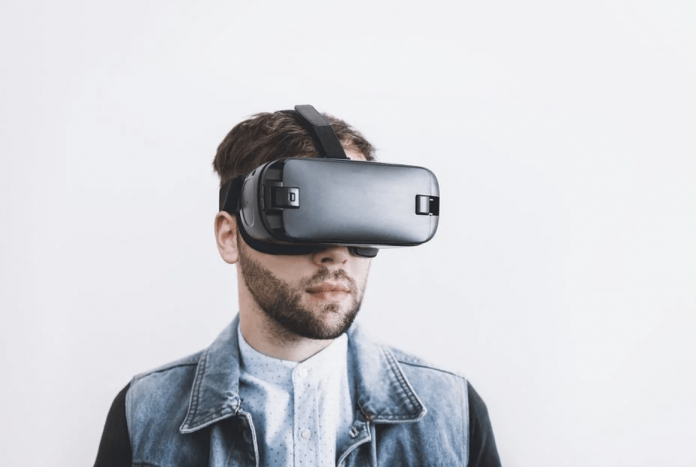The gaming industry is a billion-dollar industry and it’s growing at a rapid pace. Gaming has become a global phenomenon in the past few years and it shows no signs of slowing down.
The gaming industry has a lot of potential with its ability to create new media forms. It reaches out to people worldwide and entertains them while they’re on their commute or just waiting for their coffee to brew.
Crypto Benefits
Cryptocurrency, through blockchain technology and smart contracts, offers many opportunities to participate in the cryptocurrency markets. It also offers numerous options for developers of all kinds:
Developers can create new game worlds using blockchain technology. It allows players to trade items or interact with each other outside of the game itself (similar to how you can collect coins on Super Mario Bros.)
Cryptos allow developers access to tools that allow them to better understand their audience. It provides analytics about player behavior. These insights are impossible with traditional payment methods such as credit cards/debit cards. Since there’s no way for developers at this time (that I know of) to make sure purchases were made ethically or legally.
Gaming Space
The gaming space is a trillion-dollar industry. It’s growing rapidly, and it’s a global phenomenon. The gaming space is highly competitive, highly regulated, and highly profitable.
There are a few key players in the gaming space that we’ll be talking about here. Sony Playstation, Nintendo Switch, and Xbox One.
These three companies are competing for market share with each other while facing competition from PC gaming platforms like Steam or Battle.net (owned by Blizzard Entertainment).
Virtual Reality
The virtual reality gaming space has been around for a while. But, with the introduction of cryptocurrencies and blockchain technology, this gaming space is set to experience radical transformation.
VR is a computer-generated simulation of a three-dimensional image or environment that can be interacted with in a seemingly real or physical way by a person using special electronic equipment. Such as a helmet with a screen inside or gloves fitted with sensors.
It incorporates mainly auditory and visual feedback, but may also allow other types of sensory feedback like haptic. This immersive environment can be similar to the real world or it can be fantastical. It’s defined by the user’s interactions within the artificial world.
Virtual reality (VR) uses computer technology to create an interactive experience that simulates an “environment,” whether that means outer space or an office building.
The user becomes completely immersed in this imaginary universe by wearing a headset that covers their eyes and ears. This way they cannot see or hear anything from outside their head-space. It is created inside their mind through visuals and sounds projected onto them via headphones in front of their eyes.
Decentralized Technology
Decentralized technology is a more secure way of storing data. With the traditional centralized model, a single entity (such as Google or Facebook) controls the network and acts as an intermediary between users who want to share information. In this scenario, you have one central point that could be hacked into by malicious third parties, compromising all of its users’ privacy.
Decentralized technology is also more efficient at sharing data between parties because it eliminates the need for an intermediary who would otherwise have to store all of your information and incur costs associated with doing so (in terms of both time and money). Decentralization allows for more direct communication between consumers/producers without any middlemen. It slows down transactions or charges high fees just so they can make a profit off their services which means cheaper products/services overall!
Video Game Industry
In the world of Video Gaming, the potential to grow is huge. The market size is at $100 billion and it’s growing at an annual rate of 16%. This figure is expected to reach $200 billion by 2020.
The global video game industry is one of the fastest-growing industries in the world with huge growth potential. It has been estimated that by 2022, gaming will add up to 15% of total entertainment spending worldwide!
Video gaming can be described as a global market, one that has no borders or limitations in terms of geography, language, or culture. Players from all over the world are attracted to this genre.
It allows them to interact with other players from around the world through various platforms such as chat rooms and forums (forums). So when you’re playing online games such as Call Of Duty: Black Ops 4 multiplayer mode against another person who lives halfway across planet earth. You’re interacting with someone who lives thousands of miles away!
Transparency
Blockchain is a decentralized system, which means that the network is not dependent on any central server or authority to operate. This makes it extremely difficult to convince all participants in the network to agree on something false. Therefore ensures that data stored in the blockchain remains secure and authentic.
Every transaction made through cryptocurrency goes into a public ledger called a “block” which records every transaction made by users on the platform since its launch. The public ledger can be accessed by anyone who has access rights to it (in the case of Bitcoin), but all transactions are visible to everyone who wants it.
Since each block is connected with other blocks forming an interconnected chain, altering or deleting data from one block would require tampering with all subsequent blocks as well! As such, there’s no chance of fraud or theft taking place using cryptocurrencies. Every action performed with them will have been recorded somewhere else too!
Trustworthiness
Trust is a key factor in the gaming space, and blockchain technology offers a way to build trust. Trust is built in the blockchain by using a distributed ledger that all parties can see and verify. Trust is also built into blockchains by using smart contracts, which are legally binding agreements.
It can be programmed to execute certain actions automatically once certain conditions have been met. Finally, trust is built into blockchains because consensus algorithms require all participants to agree on blocks before they can be added to the chain (as opposed to a traditional database).
Conclusion
Recently, there has been a lot of buzz about how blockchain technology and cryptocurrencies are transforming the gaming space. Blockchain is already disrupting many industries from manufacturing to supply chain management.
While it’s still unclear how the crypto market will fare in 2020 and beyond, we can all agree that cryptos have the potential to change our lives for better or for worse. Cryptos are changing our lives forever and how they are transforming the gaming world!











